Why Choose Us for Preventive Dentistry?
Latest
Technologies
We are equipped with cutting-edge technology and the latest tools to ensure your oral exams are as comfortable as possible.
Flexible
Schedule
We are here to accommodate your busy schedule.
Mon – Fri: 7 am – 9 pm
Sat – Sun: 8 am – 6 pm
Free On-Site
Parking
It is easy for you to reach us thanks to our central location. Parking is available onsite for free, so feel free to visit.
For Same-Day Bookings
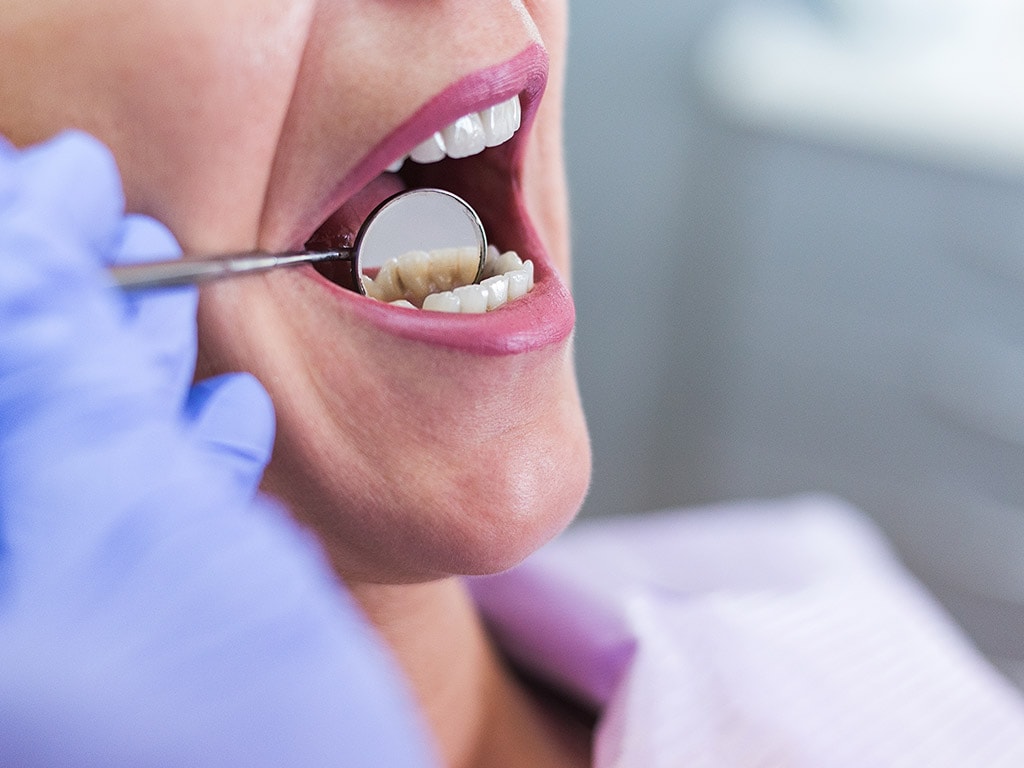
What is Preventive Dentistry?
The old proverb “it’s easier to stop something happening in the first place than to repair the damage after it has happened” certainly holds true for oral health. As a preventive dentistry practice, Hamilton Dental emphasizes diagnosing and treating oral health concerns at the earliest possible time. Our efforts to promote preventative health allow us to offer patients conservative treatment options that are minimally invasive.
Dental health is a lifelong endeavour that begins in early childhood and continues throughout adulthood. Preventative dentistry emphasizes diagnosing and treating oral health concerns at the earliest possible time through regular dental examinations and good habits such as brushing and flossing.
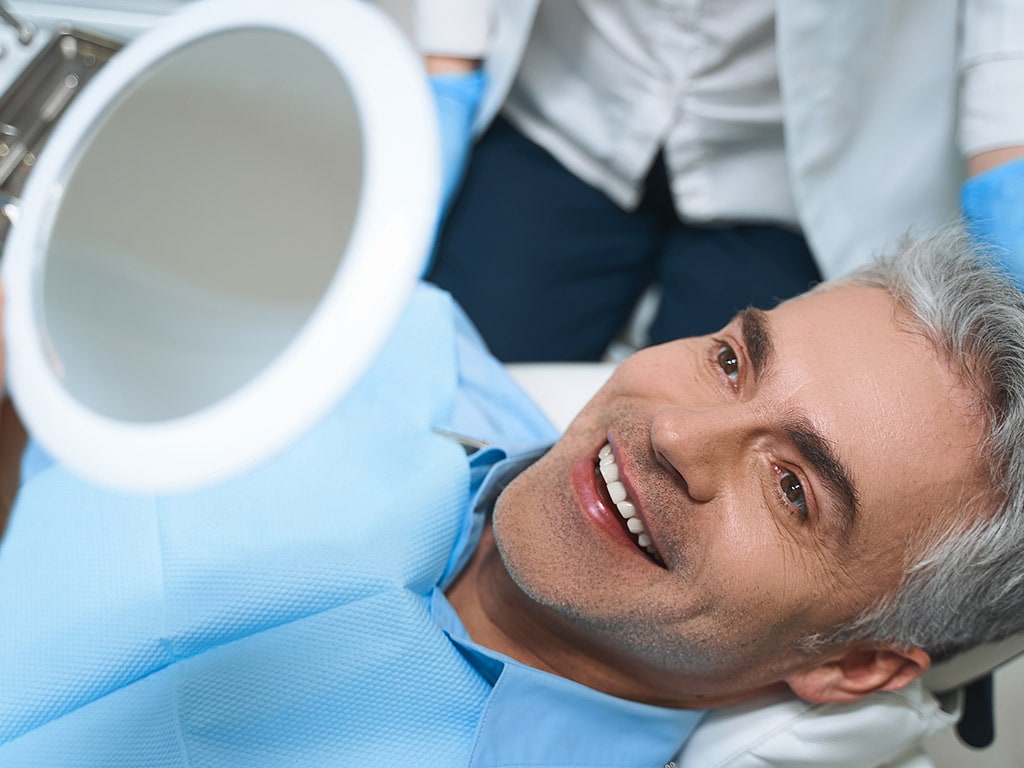
Benefits of Preventive Dentistry
Preventive dental exams offer the following benefits to your oral health:
- Reduces the risk of developing tooth decay, gum disease, and other serious dental complications.
- Promotes hygienic habits, like brushing your teeth at least twice daily and flossing.
- Allows the identification of dental problems as early as possible to minimize treatment and costs.
- Allows your dentist to examine your mouth, jaw, neck, etc., to identify any related issues.
- Improves dental and oral health by reducing problems associated with chronic medical conditions like diabetes, osteoporosis, cancers, and eating disorders.
- Regular preventive dental care plays an essential role in the overall health of people with chronic conditions.
Preventive Dental Treatments
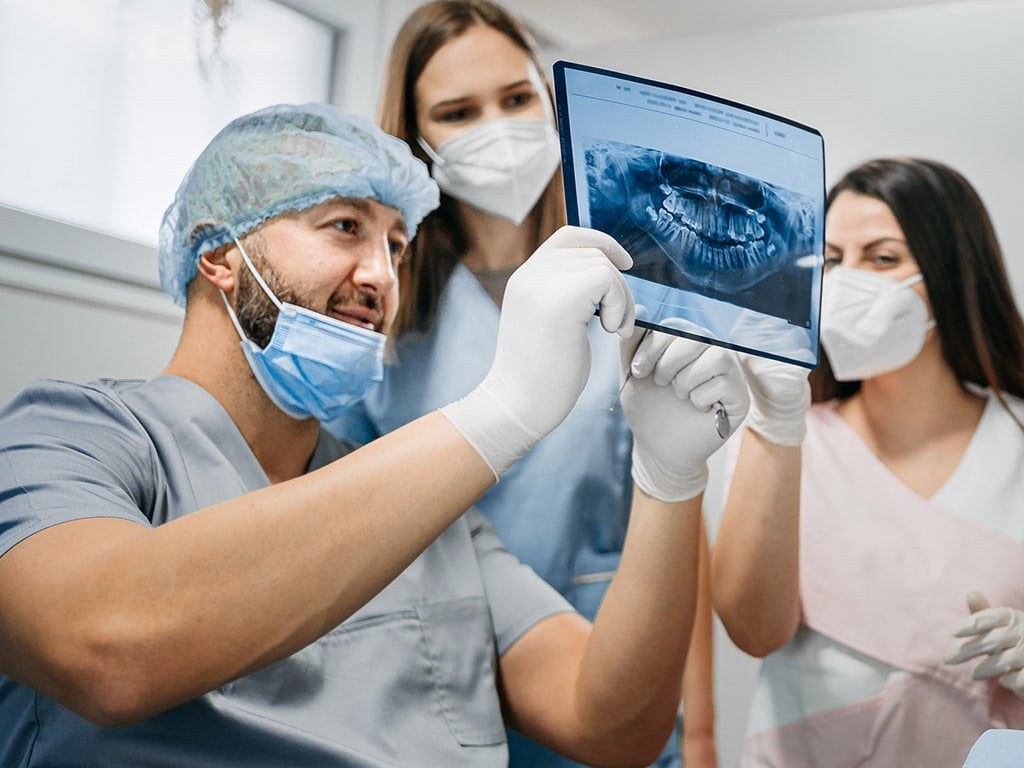
Comprehensive Dental Exams
There is more to a comprehensive dental exam than the basic checkup and cleaning you had as a child. They involve an in-depth evaluation of your oral health history and the current condition of your mouth, teeth, gums, neck, jaws and throat.
If performed regularly, these exams can provide valuable information about your teeth and gums. A dental examination can detect oral cancers and gum diseases in their early stages and evaluate the condition of any previous dental work performed on your teeth.
Hamilton Dental uses the results from these exams to formulate a long-term oral health care strategy that is customized to your needs.
Teeth Cleaning
Getting your teeth professionally cleaned regularly helps maintain good oral hygiene and prevents dental illness. Regular deep cleaning can also help you avoid more serious oral health issues in the future.
In addition to being aesthetically pleasing, clean, bright teeth can contribute significantly to your health and well-being. Our teeth cleaning service, priced at just $99 per appointment, is among Hamilton’s most affordable teeth cleaning services.
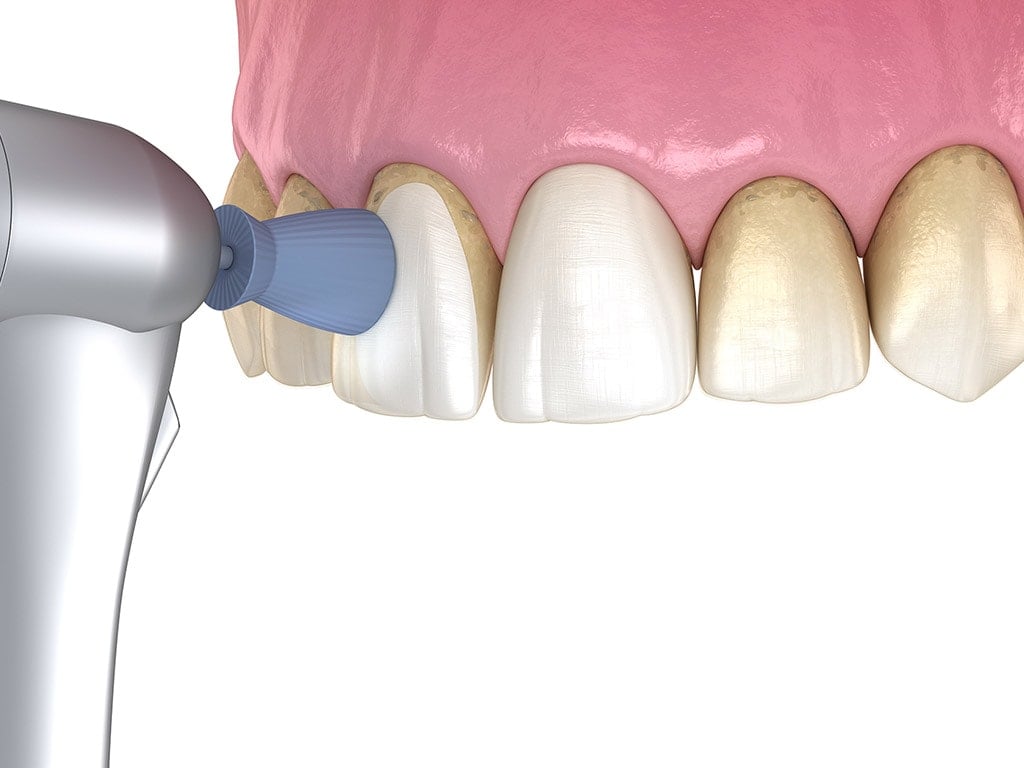
Plaque and Stain Removal
Stain removal treatments are essential to maintaining your dental health and appearance, allowing you to maintain a healthy, white smile without having to resort to bleaching agents.
Due to their natural white colour, your teeth are susceptible to staining, particularly if you smoke or consume excessive amounts of coffee and wine. Our friendly staff at Hamilton Dental can remove surface staining and improve the appearance of your smile.
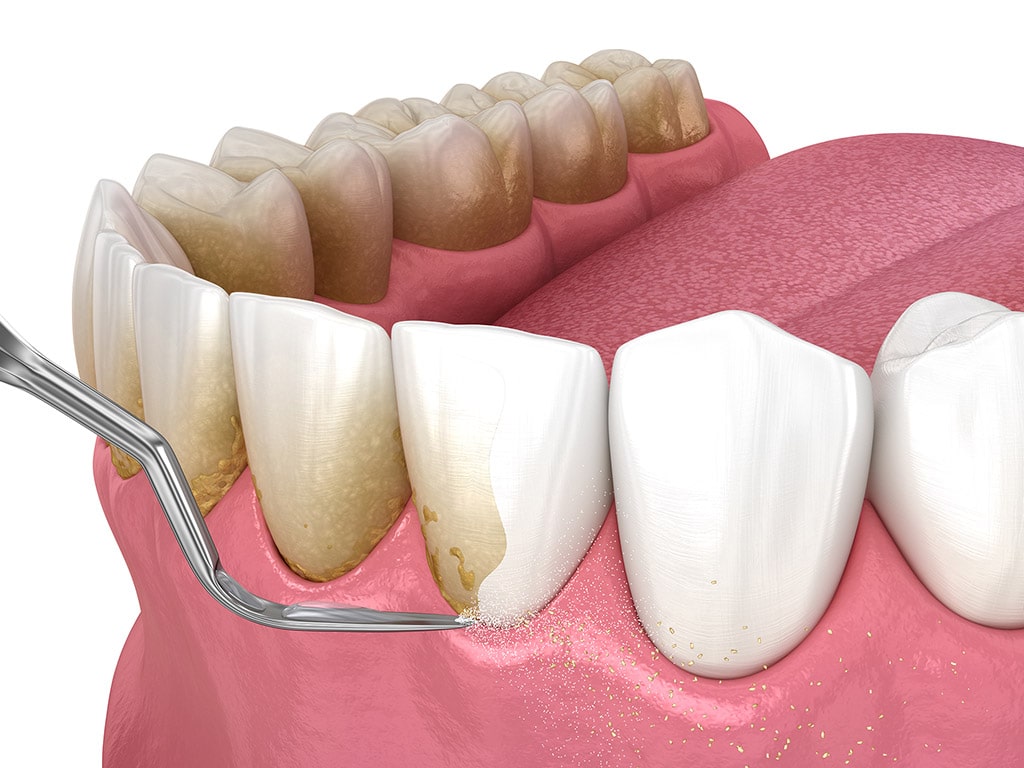
Scaling
Scaling is the process of removing plaque that has hardened into tartar and calculus with the help of hand tools. Often, this occurs along the gum line and on the backside of the teeth.
Scaling is an essential procedure in dental hygiene since it can prevent cavities even in cases where there is significant plaque buildup.
The procedure does not involve any pain, though patients may often be bothered by the noise and sensation.
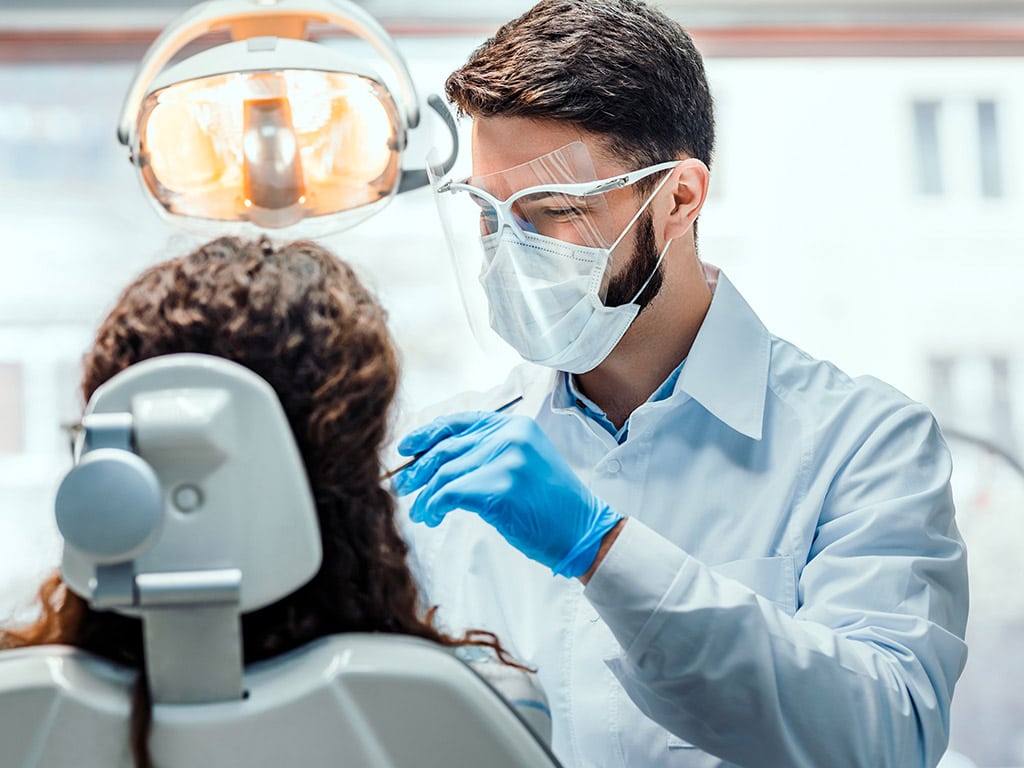
Oral Cancer Screening
A regular oral cancer screening can detect early signs of oral cancer or precancerous conditions in your mouth. Early detection increases your chances of recovery.
During your visit, our dentist will examine your mouth and screen you for oral cancer. We may recommend additional tests to identify abnormal cell growth.
Mouth Guards
Our dentists advise patients to wear mouth guards over their teeth toTo protect the teeth from injury during sports and from teeth grinding.
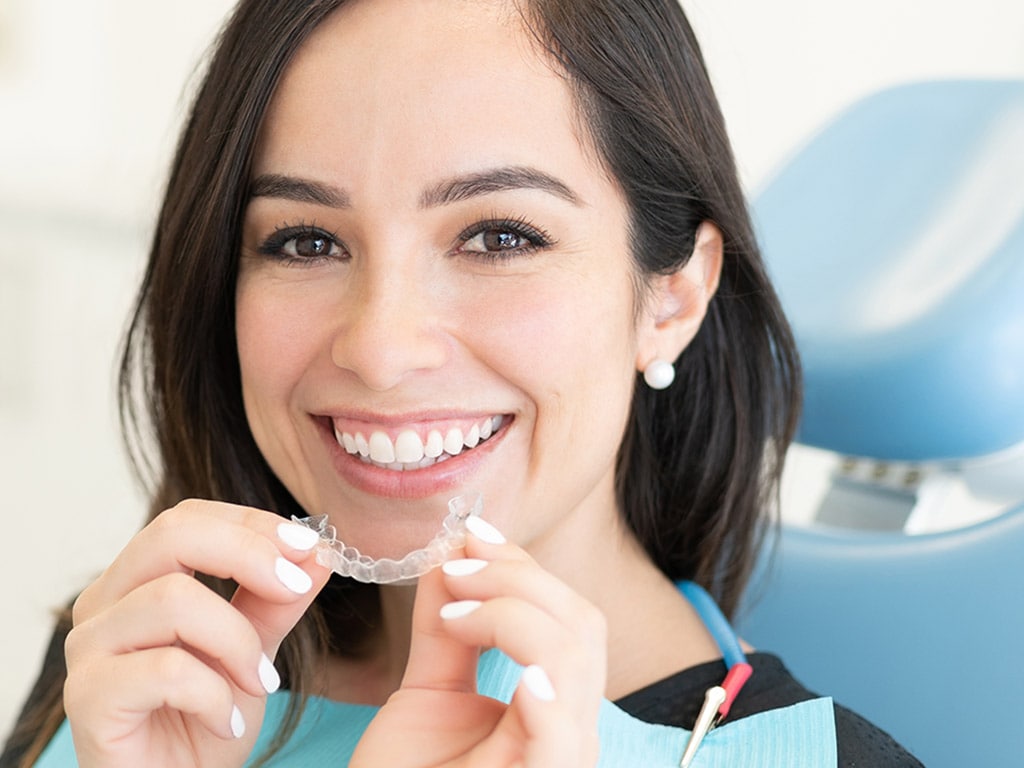
Nightguards
Also known as dental guards or nocturnal bite plates, night guards for teeth prevent teeth from grinding at night. The guard acts as a barrier between your teeth. By providing a cushion for your jaw muscles when you clench your jaw, the night guard helps to alleviate tension and pressure on your teeth. The cushioning not only prevents face and jaw pain but also protects the enamel of your teeth.
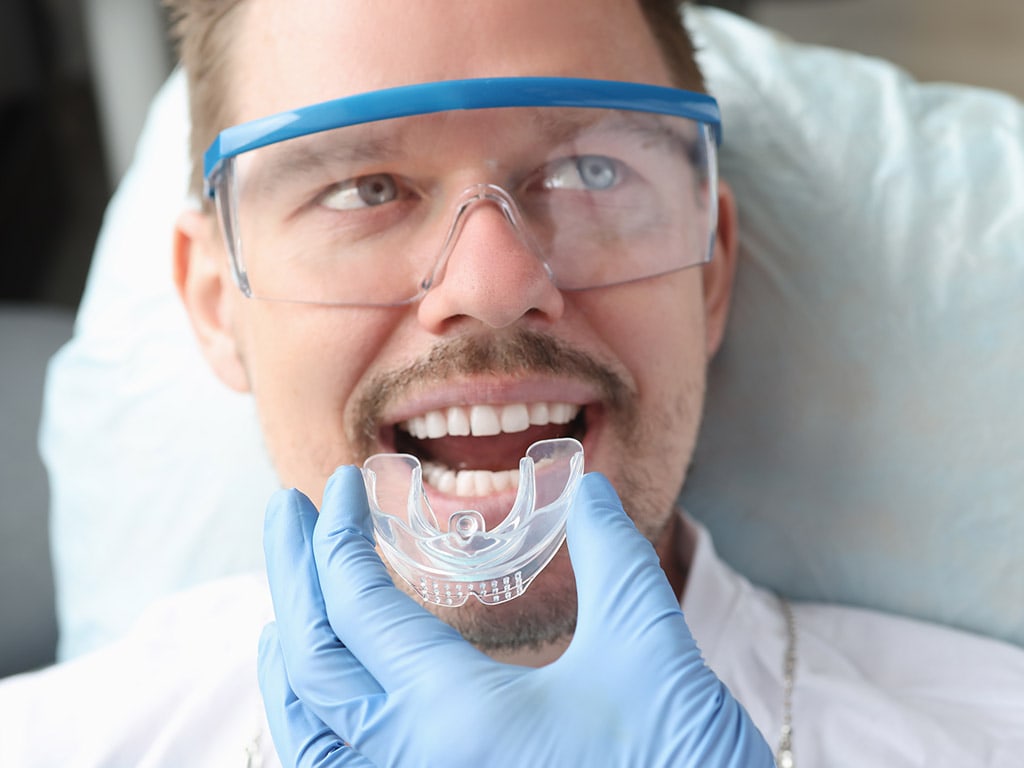
Sports Guards
This athletic mouthguard is a protective device used in contact sports such as hockey, lacrosse, and basketball. Any time there is a chance of trauma from an object or another person, a sports guard is recommended. We also urge those who engage in noncontact sports (i.e. gymnastics) and other recreational activities (i.e. skateboarding or mountain biking) that may risk the mouth’s injury to wear protective mouth guards.
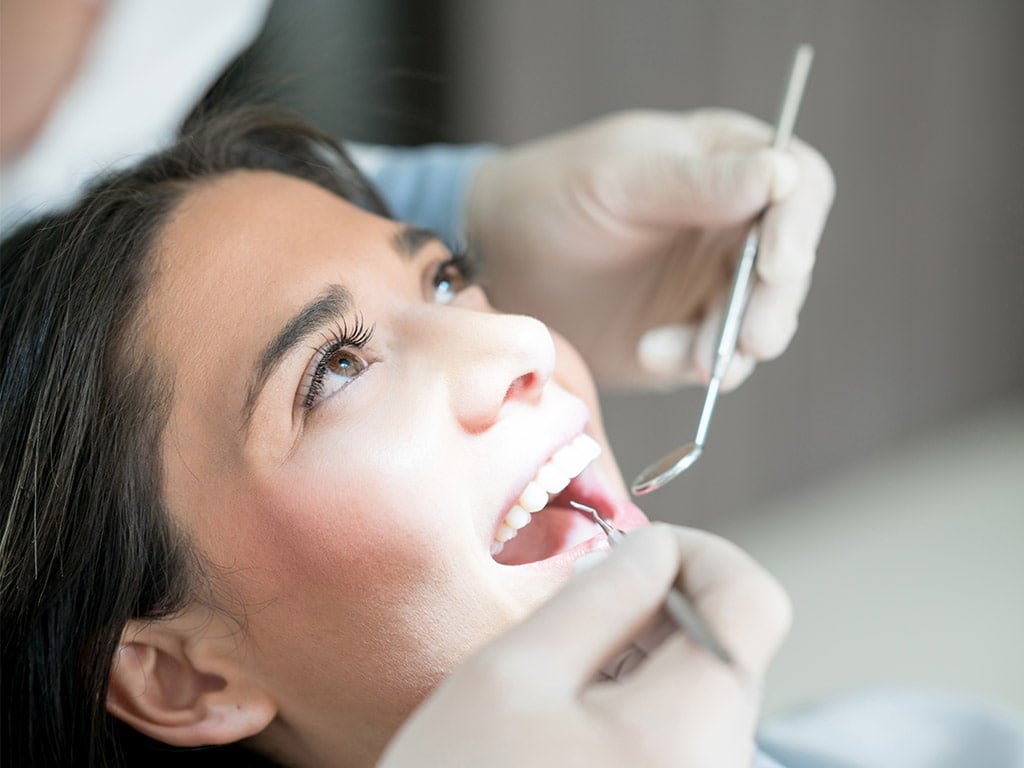
We Are Passionate About Preventive Dental Care
Our primary concern is your oral and overall health. The goal of preventative dentistry is to maintain healthy teeth and gums for a lifetime. Furthermore, it is the most effective way to avoid costly dental work caused by neglect, such as tooth decay and infection.
If you visit Hamilton Dental for regular dental exams and cleanings, our team will do its best to leave your mouth sparkling clean. In addition, we will examine any existing restorations. This includes fillings, crowns, and bridges currently in place. These will all be checked to ensure that they are in optimal condition. We will also advise you on dental best practices.
Limited-Time Offer
Teeth Cleaning for $99
Over the years, our teeth can get yellow and stained despite regular brushing. Teeth cleaning, therefore, becomes an essential part of personal maintenance. Our teeth cleaning service gets you quick results and makes your smile brighter.
Yes, I’d like pearly whites for just $99!
FAQs
What is preventive dentistry for children?
A child’s preventive dental care can begin as soon as they acquire their first tooth. Preventive dentistry for children can help identify problems early in their lives before they become worse and more expensive. Common services include:
- Encouraging healthy dental habits, including brushing and flossing, along with advice on thumb sucking and eating habits that support dental health
- Making sure they receive regular dental cleanings and oral exams (usually every six months)
- Fluoride application (usually until a certain age)
- Applying sealants
- Performing routine X-rays to monitor teeth and jaw development
- Fitting athletic mouthguards
- Assisting in the identification of related health issues that may impact a child’s dental health
Are fillings considered preventive dental care?
Fillings are not considered preventive. They fall under “basic restorative” services, which often include fillings, extractions, and root canals, among other things. Depending on your dental plan, you may be required to pay toward a deductible, coinsurance, or copay.
Do I need custom-made sports guards?
The best mouthguards are custom-made to fit your mouth and teeth precisely and are designed to provide you with the best level of protection. In order to manufacture this type of sports guard, an impression of your teeth is taken and sent to a dental lab. These mouthguards are usually fabricated from acrylic.
Since they offer the best protection, customized mouth guards are more expensive than store-bought mouthguards. Please note that some insurance companies may cover the cost of a sports guard.
What is the best way to care for my mouthguard?
To care for your mouth guard:
- You can clean your mouthguard with mild soap and water or rinse it with cold water before and after each use.
- To store or transport the mouthguard, place it in a firm, perforated container. This will allow air to circulate and prevent damage. If your mouthguard is acrylic, place it in fresh, clean water.
- The mouthguard should be protected from exposure to high temperatures, such as hot water, hot surfaces, or direct sunlight, to prevent distortion.
- Check the mouth guard periodically for general wear and tear. Replace it if you find holes or tears in it, if it becomes loose or causes discomfort.
- You should bring your mouthguard to every dental appointment to be examined by your dentist.
Is it ok to wear a mouthguard if I have braces?
Certainly, a fitted mouthguard is essential for people who wear braces or have fixed bridge work since an injury to the face could damage them. The dentist or orthodontist can determine which mouth guard will provide you with the best protection for your specific dental needs. We want to remind our patients that they should not wear orthodontic retainers or other removable appliances while participating in contact sports or any recreational activity that puts their mouth at risk of injury. One exception to this rule is Invisalign trays, which are often worn with mouth guards while participating in sports.
Why do you need a mouthguard when playing sports?
Since accidents can occur during any form of physical activity, using a mouth guard during sports can reduce the risk of mouth-related injuries to the mouth’s lips, tongue, and soft tissues. In addition to reducing the risk of chipped or broken teeth, mouth guards may also prevent nerve damage to or even the loss of a tooth.
What is your role in preventative dental care?
You are responsible for the majority of your preventive dental care. Developing healthy dental habits during childhood can reduce cavities, gum disease, and gingivitis. The following are the basics of good oral health:
- Use fluoride toothpaste and a soft-bristled brush to brush your teeth at least twice a day — usually morning and night. Consult one of our dentists to find out what is the best toothpaste to use. Additionally, they can instruct you on how to brush correctly.
- Floss daily to expel food particles stuck between your teeth before they become plaque.
- After you finish flossing, rinse your mouth with mouthwash to remove food particles.
- Avoid acidic foods that can harm the enamel on your teeth.
- Avoid hard foods like candy, nuts, seeds, and pits that could chip or break your teeth.
- Don’t smoke or use tobacco products. They are known to cause cancer and other dental problems.
- Consider wearing a mouthguard when playing sports.
- Ask your dentist about getting a mouth guard to prevent gum recession if you grind your teeth at night.